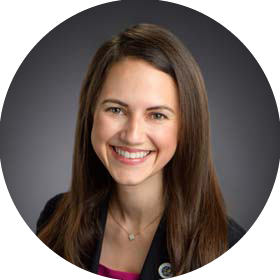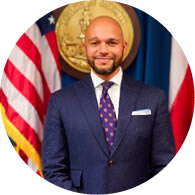Policymakers, scholars, and practitioners across the country joined the annual Summit on October 7, 2021 to learn how to strengthen state policies that impact the foundational prenatal-to-3 development period, starting with rigorous evidence.
The recording of the Summit is available below, divided according to the agenda. Full speaker bios are below the recordings.
Agenda and Recordings
Segment 1: THE 2021 PRENATAL-TO-3 STATE POLICY ROADMAP
- Cynthia Osborne, Ph.D. – Director, Prenatal-to-3 Policy Impact Center; Associate Dean, The University of Texas at Austin LBJ School of Public Affairs
- Kaeley Benson, Ph.D. – Assistant Director, Prenatal-to-3 Policy Impact Center
Segment 2: PANEL: RESTRUCTURING STATE GOVERANCE TO PRIORITIZE EARLY CHILDHOOD
- Jovanna Archuleta – Assistant Secretary for Native American Early Education and Care, New Mexico Early Childhood Education and Care Department
- Jenna Conway – Deputy Superintendent, Early Childhood Care and Education, Virginia Department of Education
- Janis Gonzales, M.D. – Chief Health Officer, New Mexico Early Childhood Education and Care Department
- Elizabeth Groginsky – Cabinet Secretary, New Mexico Early Childhood Education and Care Department
- Kayla Hahn, Ph.D. – Policy Director, Office of Governor Michael L. Parson
- Robert C. White, Jr. – Councilmember At-Large, Council of the District of Columbia
Segment 3: THE 2021 PRENATAL-TO-3 STATE POLICY ROADMAP: STATES’ PROGRESS, DESPITE HUGE CHALLENGES
- Cynthia Osborne, Ph.D. – Director, Prenatal-to-3 Policy Impact Center; Associate Dean, The University of Texas at Austin LBJ School of Public Affairs
Segment 4: SAME FAMILY: DIFFERENT RESOURCES – STATE POLICY CHOICES LEAD TO VARYING LEVELS OF FAMILY RESOURCES
- Cynthia Osborne, Ph.D. – Director, Prenatal-to-3 Policy Impact Center; Associate Dean, The University of Texas at Austin LBJ School of Public Affairs
Segment 5: PANEL: SPOTLIGHTS ON STATES’ POLICY PROGRESS
- Stephanie Hilferty – State Representative, Louisiana House of Representatives
- Claire Wilson – State Senator, Washington State Senate
- Cristina Pacione-Zayas – State Senator, Illinois State Senate
- M. Teresa Ruiz – State Senator, New Jersey State Senate
Segment 6: ON THE HORIZON: NEW RESEARCH TO BUILD THE EVIDENCE BASE and CLOSING REMARKS
- Abby Lane, Ph.D. – Prenatal-to-3 Policy Clearinghouse Senior Research Associate, Prenatal-to-3 Policy Impact Center
- Cynthia Osborne, Ph.D. – Director, Prenatal-to-3 Policy Impact Center; Associate Dean, The University of Texas at Austin LBJ School of Public Affairs
Speakers and Panelists
In alphabetical order.
 |
Jovanna ArchuletaAssistant Secretary for Native American Early Education and Care, New Mexico Early Childhood Education and Care Department Assistant Secretary for Native American Early Education and Care comes from the Pueblo of Nambe, one of the 22 Tribes in New Mexico in which she supports to strengthen early education and care and meet the vision of each unique Tribe, Pueblo and Nation. The past decade, Jovanna has spent her career working with the Eight Northern Indian Pueblo’s Council and most recently worked with the Los Alamos National Laboratories (LANL) Foundation creating eight individual early childhood strategic plans- now being implemented across the tribes. Jovanna has a Master’s in Business Administration from New Mexico Highland’s University (NMHU) and also participated in Pueblo cohort to obtain a Child Development Certificate (CDC) from Central New Mexico Community College (CNM). |
 |
Kaeley Benson, Ph.D.Assistant Director, Prenatal-to-3 Policy Impact Center Dr. Kaeley Benson is the Assistant Director for the Child and Family Research Partnership (CFRP) and its Prenatal-to-3 Policy Impact Center at the LBJ School of Public Affairs at The University of Texas at Austin. She provides support and guidance to all CFRP and Policy Impact Center teams, and helps to develop and disseminate the annual State Policy Roadmap. Dr. Benson’s expertise is in child development, with a focus in early childhood. In previous roles at CFRP, Dr. Benson has helped design and implement evaluations of statewide programs to support families with young children including federally-funded home visiting programs, programs to engage fathers, and programs to support military and veteran families. She holds a Ph.D. in Human Development and Family Sciences from the University of Texas at Austin. Dr. Benson has previously worked on the Texas KIDS COUNT project and at the Yale University Child Study Center. |
 |
Jenna Lawrence ConwayDeputy Superintendent, Early Childhood Care and Education, Virginia Department of Education Jenna Lawrence Conway is the Deputy Superintendent, Early Childhood Care and Education for the Virginia Department of Education. She works with public and private partners across the Commonwealth to unify the early childhood care and education system to help prepare all Virginia children for kindergarten. Previously, Jenna led a statewide effort in Louisiana, helping communities unite child care, Head Start and school-based pre-k programs to increase access, improve classroom quality and engage families of children aged birth to five. As a result of her efforts, every publicly-funded classroom is observed, teachers receive feedback and supports and families have better information. Results show year over year improvement in teacher-child interactions in toddler and preschool classrooms, leading to more children ready for school. She holds degrees from Yale University, the Stanford University Graduate School of Business and the Broad Education Residency. |
 |
Janis Gonzales MD, MPH, FAAPChief Health Officer, New Mexico Early Childhood Education and Care Department Dr. Janis Gonzales is the first Chief Health Officer for the NM Early Childhood Education and Care Department, serving in the Office of the Secretary. Previously Dr Gonzales served for six years as the Family Health Bureau Chief and the Title V Director in the New Mexico Department of Health, where she had oversight of several programs including Children’s Medical Services, Families FIRST, WIC, Family Planning, Maternal Child Health Epidemiology, Child Health, and Maternal Health/midwife licensing. She is the immediate Past President of the NM Pediatric Society (NM Chapter of the AAP) and the AAP Early Childhood Chapter Champion for NM, as well as the current President of the NM Perinatal Collaborative. She is also a board member of the Association of Maternal Child Health Programs (AMCHP), a founding board member of Hero’s Path Palliative Care, and a member of the J Paul Taylor task force, the CARA task force, and the Birth Equity Collaborative. She received her MD from the University of Illinois, her MPH from the University of New Mexico, and is Board Certified by the American Board of Pediatrics. |
 |
Elizabeth GroginskyCabinet Secretary, New Mexico Early Childhood Education and Care Department In November 2019, New Mexico Governor Michelle Lujan Grisham appointed Elizabeth Groginsky as the first cabinet secretary of the New Mexico Early Childhood Education and Care Department, which officially launched in July, 2020. Sec. Groginsky began her early childhood career in Head Start – first as a family services coordinator, then as an administrator of a Head Start program, and eventually as director of Colorado’s Head Start State Collaboration Office. Later, she directed early childhood education for United Way Worldwide and steered the Early Childhood Data Collaborative, a national coalition designed to improve state policies and practices around early childhood data systems. Most recently, Secretary Groginsky served as assistant superintendent of early learning in the District of Columbia, spearheading the District’s efforts toward universal PreK and focusing on ensuring equal access for all families and young children. |
 |
Kayla Hahn, Ph.D.Policy Director, Office of Missouri Governor Michael L. Parson Kayla Hahn currently serves as the Policy Director for Missouri Governor Michael L. Parson. In that role, she assists in preparing the Governor’s legislative policy agenda and recommended budget, along with working with cabinet members and state agencies to advance the Governor’s administrative priorities. Kayla also serves as a Commissioner on the Midwestern Higher Education Commission where she is a member of the Executive Committee and the Ad Hoc Committee on Governance. Prior to joining the Governor’s Office, she was the Assistant Director of Senate Research where she staffed the Agriculture, Food Production, and Outdoor Resources Committee and the Commerce, Consumer Protection, Energy, and the Environment Committee. Kayla earned her B.S. in Political Science at Missouri State University, and her M.A. and Ph.D in Political Science at the University of Missouri – Columbia. |
 |
Stephanie HilfertyState Represenatative, Louisiana House of Representatives Stephanie Hilferty is a State Representative in the Louisiana House of Representatives for District 94 in Orleans and Jefferson parishes. She is also a commercial real estate sales and leasing agent with SRSA Commercial Real Estate in Metairie, Louisiana. In 2015, Stephanie defeated a nine-year incumbent to serve as the Louisiana state representative for District 94, which covers the lakefront of Metairie and New Orleans, including the Lakeview and Mid City New Orleans neighborhoods. Stephanie is the first millennial to serve the New Orleans area in the state legislature. She also as the distinction of the being the first sitting legislator to give birth during session. Not wanting to miss session, Stephanie returned to the house floor two weeks after giving birth. |
 |
Abby Lane, Ph.D.Prenatal-to-3 Policy Clearinghouse Senior Research Associate, Prenatal-to-3 Policy Impact Center Dr. Abby Lane is a senior research associate for the Prenatal-to-3 Policy Clearinghouse at the Prenatal-to-3 Policy Impact Center. She leads the Clearinghouse team, which conducts comprehensive, systematic reviews of the evidence to identify state policies and strategies that have demonstrated effectiveness at creating the conditions in which young children and their families can thrive. Dr. Lane’s expertise is in early care and education policy, with a broader background in social and family policy and previous experience in program evaluation. She holds a Ph.D. in public policy from the University of Texas at Austin, where her dissertation research focused on the intersection of nonstandard and unpredictable work schedules, child care, and maternal well-being. She also holds an M.P.P. from The George Washington University and a B.A. in political science from St. Olaf College. Prior to graduate school in Texas, Dr. Lane worked at the National Women’s Law Center in Washington, DC, focusing on family economic security, employment, and education policy. |
 |
Cynthia Osborne, Ph.D.Director, Prenatal-to-3 Policy Impact Center; Associate Dean, LBJ School of Public Affairs Dr. Cynthia Osborne is the Associate Dean for Academic Strategies and Founder and Director of the Child and Family Research Partnership and its Prenatal-to-3 Policy Impact Center at the LBJ School of Public Affairs at The University of Texas at Austin. She is an appointed member of the National Academies of Sciences Committee to Reduce Child Poverty by Half in Ten Years. Osborne has extensive experience leading long-term evaluations of state and national programs, with the aim of helping organizations understand what works, and how to ensure sustainable implementation of effective policies. Her work includes evaluations for the Texas Home Visiting Program, one of the largest home visiting programs in the country, and for critical state-level child welfare and child support programs. Osborne holds a Ph.D. in Demography and Public Affairs from Princeton University, a Master in Public Policy from Harvard University’s Kennedy School of Government, and a Master of Arts in Education from Claremont Graduate University. Previously, she taught middle school in a low-income community in California. |
 |
Cristina Pacione-Zayas, Ph.D.State Senator, Illinois State Senate Dr. Cristina Pacione-Zayas was appointed to the Illinois Senate in December 2020. She serves on the Illinois Early Learning Council executive committee, Illinois State Team of the BUILD Initiative, and Title V Needs Assessment Advisory Committee for the State’s federally-mandated Maternal and Child Health Services. Before joining the Senate, she was the Associate Vice President of Policy for Erikson Institute, an academic institution focused on child development where she led Erikson’s policy agenda to generate systemic solutions and equitable opportunities for young children, families, and communities. Dr. Pacione-Zayas is credited with establishing Erikson’s Early Childhood Leadership Academy and Community Data Lab—two statewide initiatives designed for Illinois leaders to foster deeper understanding of the importance of a child’s early years and how to apply child development science to policies that yield positive outcomes for children and families. She previously served as board secretary on the Illinois State Board of Education, co-chaired the Kindergarten Transition Advisory Committee of the P-20 and Early Learning Councils, and served on the Governing Board of the Illinois Network of Child Care Resource and Referral Agencies, Educational Success Committee of Governor J.B. Pritzker’s Transition Team, and the Education Committee of Mayor Lori Lightfoot’s Transition Team. |
 |
M. Teresa Ruiz
State Senator, New Jersey State Senate M. Teresa Ruiz was elected to the New Jersey State Senate in 2007 as the first Puerto Rican and re-elected in 2011, 2013 and 2017. She was elected by her colleagues to serve as Senate President Pro Tempore in 2018 and 2020 and is the first Latina to hold the position. A fearless advocate for equity and justice Senator Ruiz has championed for the rights, protections and advancement of families and children and has led statewide efforts to address the inequalities that persist in our society. The senator has spearheaded efforts to move New Jersey toward universal preschool, and championed the inclusion of $25 million in the 2018 budget to expand pre-k to more students. The senator authored a law that overhauled the state’s teacher tenure statute. Signed in 2012, the act put standards in place requiring tenure to be earned and maintained through ongoing performance measurements, and ensure educators get the support they need when deficiencies are identified. In 2010, Senator Ruiz was awarded an Aspen Institute-Rodel Fellowship, and was one of 24 individuals identified by the program’s leadership as America’s emerging political leaders with reputations for intellect, thoughtfulness, and a commitment to civil dialogue. Senator Ruiz received a bachelor’s degree from Drew University and is a graduate of the Harvard Kennedy School’s Senior Executives in State and Local Government Program. |
 |
Robert C. White, Jr.Councilmember At-Large, Council of the District of Columbia Robert C. White, Jr. is an At-Large Member of the Council of the District of Columbia, Chair of the Committee on Government Operations and Facilities, and was re-appointed as Chair of the Metropolitan Washington Council of Governments (MWCOG) Board of Directors. In 2008, Robert went to the United States Congress to serve as Legislative Counsel to Congresswoman Eleanor Holmes Norton. He served as a lead staffer on congressional oversight hearings related to DC and helped draft legislation to loosen Congress’ grip on the DC government and to give greater autonomy and independence to DC residents. In 2014, Robert was tapped by Attorney General Karl A. Racine to serve as the first Director of Community Outreach for the DC Office of the Attorney General. There, Robert worked to design and execute a blueprint for community engagement with a focus on improving services and supports for the city’s most vulnerable residents. Robert graduated from Archbishop Carroll High School in Washington DC and attended St. Mary’s College of Maryland, earning degrees in Philosophy and Political Science and completing additional studies at Oxford University in England and in The Gambia, West Africa. Robert earned his law degree from the American University Washington College of Law. |
 |
Claire Wilson
State Senator, Washington State Senate Claire Wilson’s legislative work has built on her 25 years at the Puget Sound Educational Services District, where she was an administrator in early education and family involvement. Previously, Claire taught pregnant and parenting teens at Mt. Tahoma High School and was a senior grants and contracts manager for the City of Seattle’s teen parent programs. Most recently, she served as an elected school board director for Federal Way Public Schools for eight years. As vice chair of the Senate Early Learning & K-12 Education Committee, Claire’s extensive experience with education and families has informed a wide range of legislation. She has worked on legislation to improve and expand access to childcare and early learning services, including the landmark Fair Start for Kids Act in 2021. Claire also serves on the Task Force on Improving Institutional Education Programs and Outcomes, whose focus is to improve the coordination and delivery of education services to youth involved with the juvenile justice system, and the Washington State Leadership Board (formerly the Association of Washington Generals). Claire identifies as a lesbian woman and mother, and is one of seven LGBTQ lawmakers in the Washington State Legislature. |
Follow @pn3policy
Follow us on Twitter at @pn3policy and join the conversation at #pn3policy.



